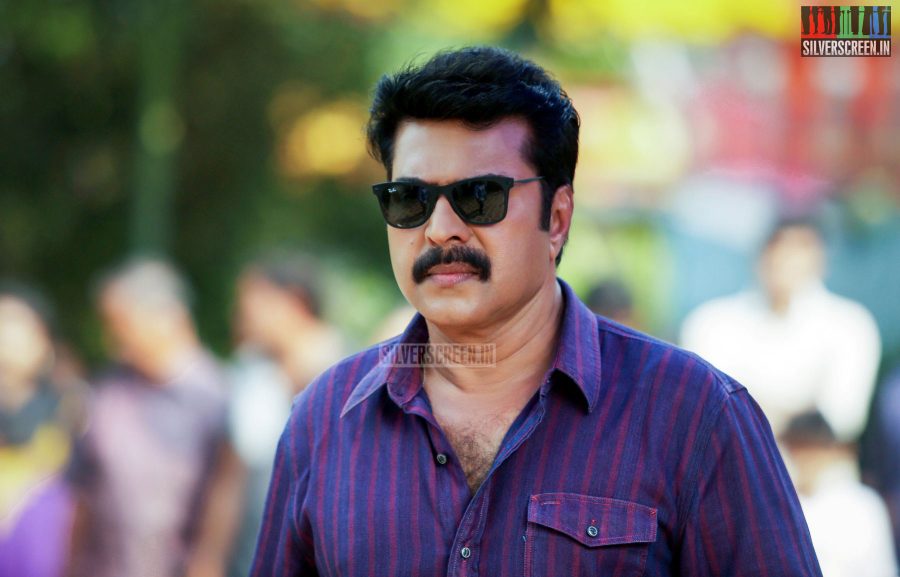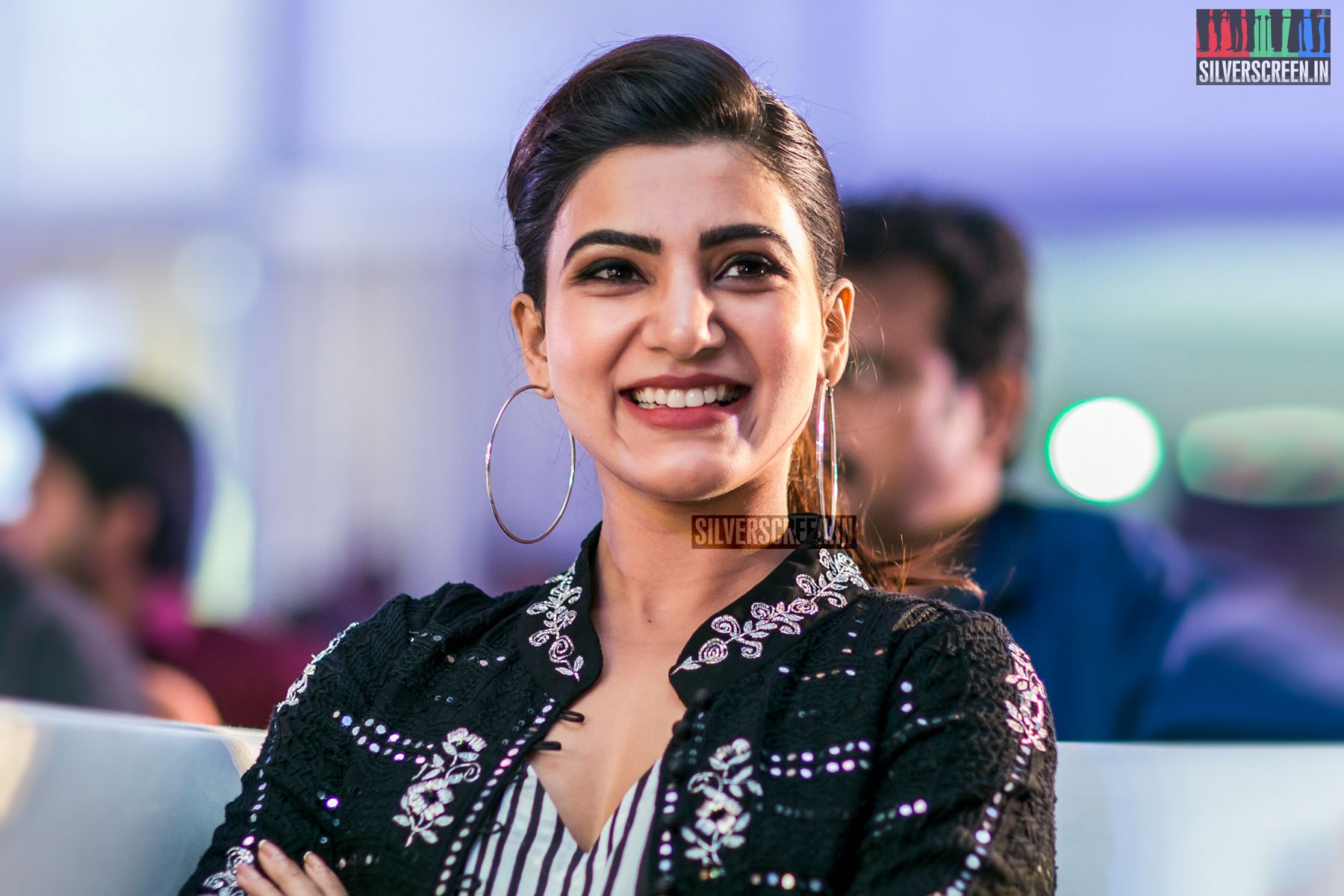Clearly, now is not the best phase in Megastar Mammootty’s career. Of his eight films that released in the last two years, only one became a hit at the box-office. All eight though, received poor ratings from critics. His unparalleled acting talent is no more the selling point of his films; the focus has shifted entirely to his handsomeness and youthful looks (he is 67). Worse, the actor gets embroiled in murky controversies every now and then, thanks to his fans who indulge in ugly verbal fights with the fans of Mohanlal, the other superstar in Mollywood, over box-office numbers, and just about anyone who criticizes Mammootty. The fans, mostly young men, use abusive language, expletives and sexist remarks to prove their point that their idol is beyond criticism.
Recently, the fan warriors of Mammootty unleashed an online attack on a bunch of actresses in Mollywood for criticizing Kasaba (2016), a poorly made movie that the actor himself is perhaps trying to forget.
Review: ‘Kasaba’ Takes A Beaten To Death Path Of Gaudy Machismo
Kasaba, directed by debutant Nithin Ranji Panikkar, is about a rogue police officer Rajan Zacharia, played by Mammootty. In the controversial scene, he grabs a senior police officer – a young woman from north India – by her belt and warns her that he would rape her so bad that she wouldn’t be able to walk properly for a few days. When he walks away from her, a loud background music begins, like a cue for the fans inside the cinema hall to start cheering and clapping. The film, although not a blockbuster, earned a considerable sum at the box-office, according to sources in Kerala Film Chamber of Commerce.
The scene had triggered protests at the time of the film’s release, and had even prompted the Women’s Commission to send a legal notice to the film’s makers. While Parvathy just added to the already existing criticism again the film, the ugly backlash she had faced is certainly upsetting. The actor’s fans and other trolls called her a ‘feminichi‘ (femininazi) and accused her of hypocrisy, citing a kissing scene she had done in Bharat Bala’s Mariyan. “If you can kiss like a whore, Mammookka can play a negative character too,” read one of the Facebook comments on her profile.
Apart from equating Mariyan’s scene of consensual romance to Kasaba’s use of violence against a woman to accentuate the heroism of the lead man, the fan boys also shared screen-grabs from Parvathy’s recent Bollywood film, Qarib Qarib Single, where she is seen trying to cover herself with a blanket when Irrfan Khan walks in on her while she is changing. “A film is just a film. Don’t try to censor it, ” the trolls argued, even though Parvathy never called for a ban on Kasaba, but just wondered how a veteran actor hadn’t quite realised the dangerous silliness of the film he worked in.
A film is never ‘just’ a film. Being the most popular of popular mediums, cinema has always had great cultural significance. In a land where film stars are treated like demigods, where they get easy tickets to parliament and state assemblies, films and its stars exert considerable influence on the society. If films were just films, why would governments and political outfits across the world try to control filmmakers and films’ content? Actors like Mammootty and Mohanlal have images that are bigger than every film they have worked in, and often, the line that separates their onscreen and off-screen persona is awfully narrow.
Let’s not forget that the lady officer in Kasaba‘s controversial scene exists because the script written by Nitin Ranji Panikker wanted her to be there. She isn’t a character pivotal to the story-line; nothing is spoken or shown of her except for the fact that she is arrogant and hence, deserves to be tamed. The scene begins with her and a female colleague discussing the cockiness and virility of Rajan Zachariah, and subsequently, she walks towards him, a button on her shirt left deliberately open. She asks him not to smoke in the police station corridor and rebukes him for not saluting a senior officer. But no, Rajan is unfazed. He is not a man small enough to fall for a woman or be polite to her. This portrayal of an arrogant woman is reminiscent of Mammootty’s The King in which Vani Viswanath’s junior IPS officer arrogantly throws her weight around for 80 percent of the movie, so that the audience feel a sense of gratification and excitement when she finally gets berated by Mammootty’s IAS officer.
Kasaba‘s scene is structured in such a way that it looks like the woman asked for it, and leaves an impression in the audience’s mind that Rajan deserves to be applauded, not hated for his act of misogyny.
The resentment against Kasaba shouldn’t be seen as a call for censorship on creativity. In Adoor Gopalakrishnan’s Vidheyan (Servile, 1993), Mammootty played Bhaskara Pattelar, one the greatest villains Indian cinema has ever seen. The man was a ruthless landlord, a murderer and a philanderer. The cinematic craft of Vidheyan is colossally superior to that of Kasaba, for it is a film that belongs to the director, not the star or his several thousand fans. The social milieu of the characters, and their psychology are carefully delineated. While Vidheyan wants you to think about human beings and the animal tendencies inside them, Kasaba wants the audience to cheer its handsome and macho superstar who doesn’t cower in front of a hot young woman. It is unfortunate that in a society grappling with the complex and serious issue of sexual violence, Nithin, a young director, decided to play to the gallery of misogynists.
Recommended
Mammootty started his acting career in 1971, played most of his iconic roles in the 80s and early 90s. He has played myriad roles in films of various genres, directed by master filmmakers such as KG George, Adoor Gopalakrishnan, Aravindan, Padmarajan and Bharathan. The erosion in the quality of films in his oeuvre began in the late 90s when cheesy star-vehicles were churned out one after another, catering to a section of young audiences who identified him only as a handsome megastar. It shouldn’t surprise anyone that these fans vehemently abused and trolled a 20-something actress, Anna Rajan, for saying she would love to play Mammootty’s daughter. In Padayottam (1982), Mammootty played Mohanlal’s father, and in Poomukhappadiyil Ninneyum Kaathu (1983), he played the father of the girl courted by actor Rahman.
Anna Rajan teared up in a Facebook live post and apologised to Mammootty and his fans – something Parvathy or her friends in WCC would never do. Mammookka hasn’t yet spoken a word on this form of virtual violence meted out to a young star who also happens to be the co-star of his son, Dulquer Salmaan, in two superhit films.
*****



